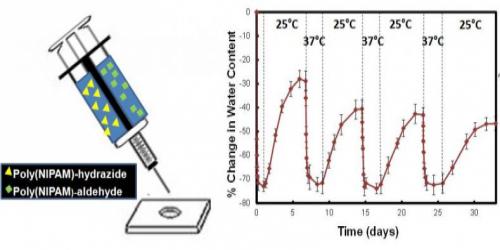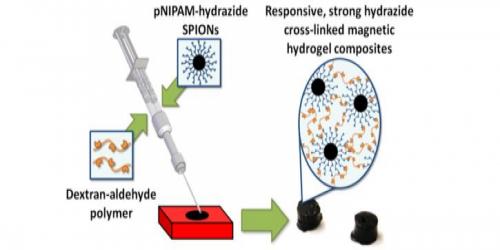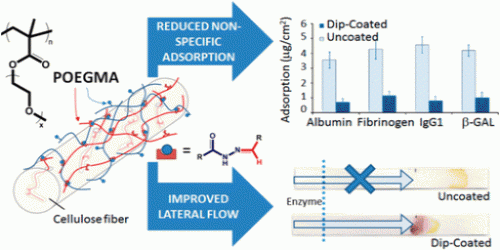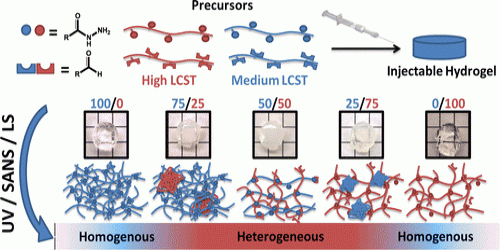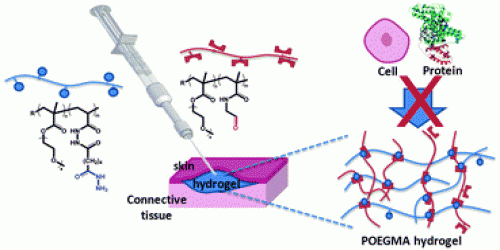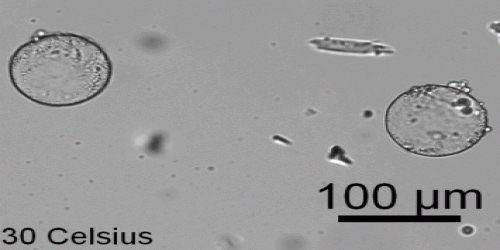Welcome! The Hoare lab works at the interface of polymer science, physical chemistry, and biology, aiming to design novel materials with “smart” properties precisely tuned to the environment and application in which the material is to be used. Our main expertise lies in the rational design of “smart” hydrogel-based materials on different length scales (i.e. bulk hydrogels, microgels, and nanogels) based on a fundamental understanding of the structure-property relationships in such materials. To achieve this understanding, we apply both the analytical tools of physical chemistry and the mathematical modeling tools of chemical engineering to predict microstructures prior to synthesis and then characterize (and optimize) the realized microstructures for specific applications. While most of our target applications lie within biomedical engineering (drug delivery, cell encapsulation, biomedical devices, biosensors, and tissue engineering), we also apply our engineered hydrogels in food, nutriceutical delivery, agricultural, and environmental applications.
Lab News
-
Our recent work from our collaborative project with Ceapro in making nanostructured hydrogels and using such gels as negative templating materials will be featured at CSChE 2017 - get a preview on our poster page.
Mon, 2017-10-23 -
Check out some of our newest materials for nanoparticle-based drug delivery at CRS 2017 in Boston - you can preview our posters here.
Sun, 2017-07-16
Dr. Hoare discusses his research on smart materials upon receiving designation as a McMaster University Scholar
No front page content has been created yet.

